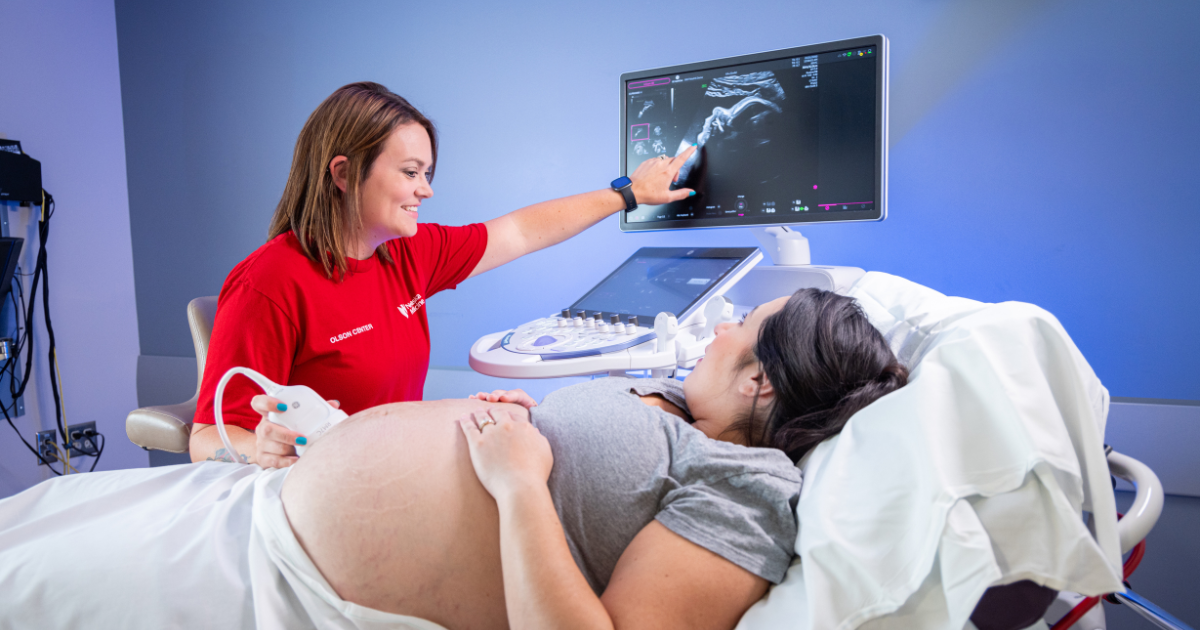What to expect during your 20-week prenatal anatomy scan

The 20-week prenatal anatomy scan is an important milestone in your pregnancy journey. This ultrasound provides essential information about your baby's development, allowing health care providers to ensure everything is progressing as expected. Here's what you can anticipate during this critical appointment.
Preparing for the scan
Before your appointment, it’s important to know what to expect. Unlike earlier ultrasounds, where a full bladder is often required, the 20-week anatomy scan usually works better on an empty bladder. This helps provide clearer images and allows the sonographer to see the baby’s structures more easily.
“The 20-week anatomy scan appointments are scheduled for an hour,” explains maternal-fetal medicine specialist Neil Hamill, MD. “However, if babies are in the perfect position, everything can be done in as little as 20-30 minutes.”
The ultrasound examination
A trained sonographer will introduce themselves and explain your procedure. They will then perform the ultrasound exam, carefully examining various aspects of your baby’s anatomy. During this scan, the sonographer will measure the baby's head, belly and limbs, assess the heart, lungs, kidneys and other organs, and check the placenta's position.
This is also when the sonographer can reveal your baby’s gender if you’re ready to find out. If you’re planning a gender reveal celebration, your sonography team can put the results in an envelope for you.
“Sometimes during ultrasounds, babies get in a position where we can’t determine the gender or check all the structures we need to,” says Dr. Hamill. “Because we want to make sure everything is normal, we’ll schedule a return visit in a month.”
Low-risk scenario
For mothers without any medical concerns, the process is generally straightforward. The sonographer will complete the scan, and a maternal-fetal medicine specialist will review all images to ensure there are no concerns.
In addition to the over the belly ultrasound, every mother will be offered a transvaginal ultrasound at the 20-week appointment. “This catches some patients by surprise, but the best way to measure the length of the cervix is with the transvaginal ultrasound,” says Dr. Hamill. “We offer it to every mother because it’s the best way to assess preterm birth risk.”
High-risk scenario
If an issue is identified during the scan, a maternal-fetal medicine specialist will meet with the patient to discuss the findings and next steps. It's important to note that sonographers are not certified to provide detailed medical answers, so if you have specific questions, they will bring in a physician.
Receiving results
Once the ultrasound is completed and the maternal-fetal medicine specialist has reviewed the exam results, they will create a report. This report is then sent to your health care provider, who will review it with you.
“If you’ve signed up for the electronic results, those will appear in your One Chart patient portal within 24 hours,” says Dr. Hamill. “You can also ask your provider to go over your report with you at your next prenatal appointment.”
Whether you’re seen at Midtown or Village Pointe location, the same sonographer team and physician teams will perform and read the ultrasound. That means patients receive the same level of care at both locations.
If everything is normal
In cases where everything in the scan is normal, the sonographer may inform you immediately after the exam. The detailed report from the maternal-fetal medicine specialist is still sent to your provider, ensuring all information is thoroughly reviewed and documented.
If there are concerns
Should there be any concerns or abnormalities detected during the scan, a maternal-fetal medicine specialist will step in to discuss these findings with you. This ensures you receive accurate information and understand what the findings mean and possible steps forward.
Finding a prenatal provider
The 20-week prenatal anatomy scan is an important part of prenatal care, providing essential insights into your baby's health and development. Being prepared and understanding the process can help ease any stress and help you feel more comfortable. Always feel free to ask questions and seek clarification from your health care providers to ensure you are well-informed throughout your pregnancy journey.





